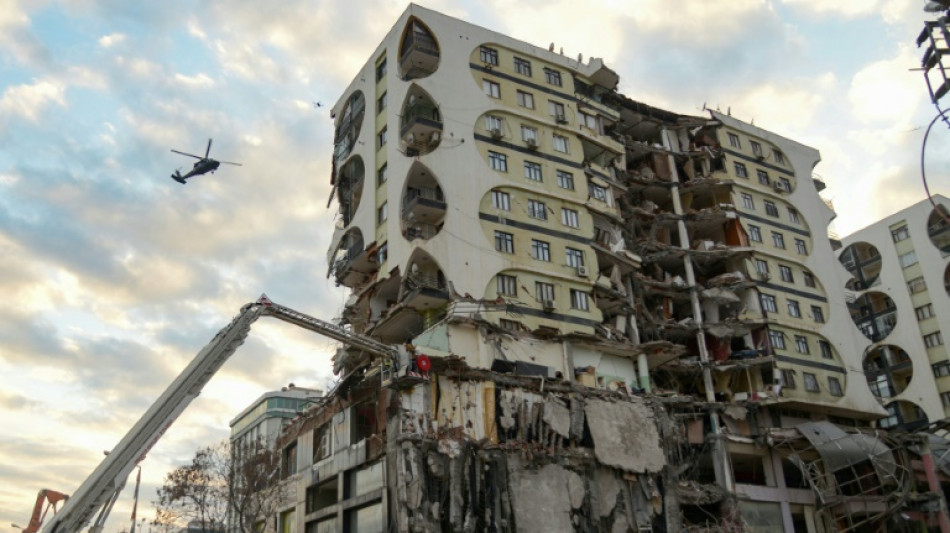
-
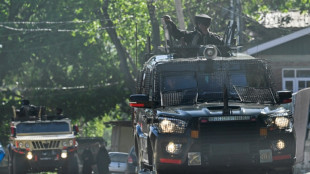 Pakistan says India planning strike as tensions soar over Kashmir attack
Pakistan says India planning strike as tensions soar over Kashmir attack
-
Weinstein sex attack accuser tells court he 'humiliated' her
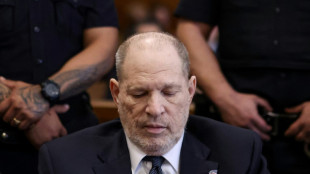
-
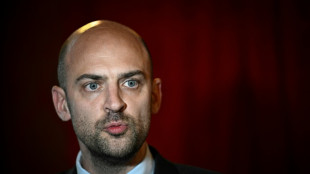 France accuses Russian military intelligence over cyberattacks
France accuses Russian military intelligence over cyberattacks
-
Global stocks mostly rise as Trump grants auto tariff relief

-
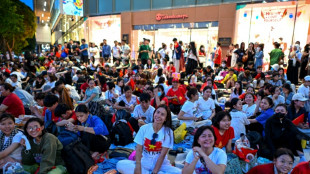 Grand Vietnam parade 50 years after the fall of Saigon
Grand Vietnam parade 50 years after the fall of Saigon
-
Trump fires ex first gentleman Emhoff from Holocaust board

-
 PSG 'not getting carried away' despite holding edge against Arsenal
PSG 'not getting carried away' despite holding edge against Arsenal
-
Cuban dissidents detained after court revokes parole
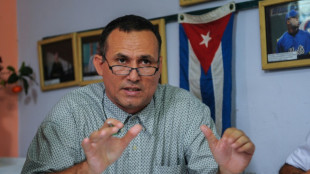
-
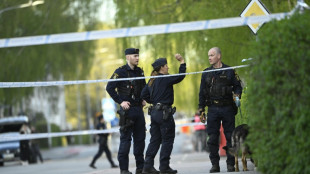 Sweden stunned by new deadly gun attack
Sweden stunned by new deadly gun attack
-
BRICS blast 'resurgence of protectionism' in Trump era
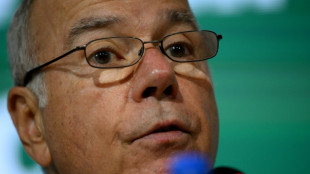
-
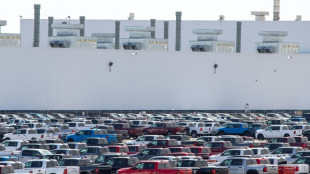 Trump tempers auto tariffs, winning cautious praise from industry
Trump tempers auto tariffs, winning cautious praise from industry
-
'Cruel measure': Dominican crackdown on Haitian hospitals
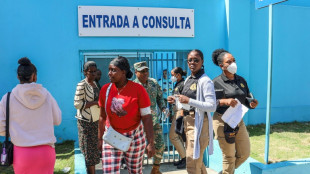
-
 'It's only half-time': Defiant Raya says Arsenal can overturn PSG deficit
'It's only half-time': Defiant Raya says Arsenal can overturn PSG deficit
-
Dembele sinks Arsenal as PSG seize edge in Champions League semi-final

-
 Les Kiss to take over Wallabies coach role from mid-2026
Les Kiss to take over Wallabies coach role from mid-2026
-
Real Madrid's Rudiger, Mendy and Alaba out injured until end of season

-
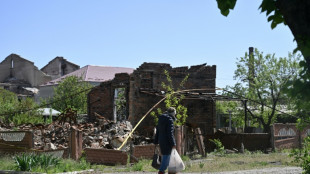 US threatens to quit Russia-Ukraine effort unless 'concrete proposals'
US threatens to quit Russia-Ukraine effort unless 'concrete proposals'
-
Meta releases standalone AI app, competing with ChatGPT

-
 Zverev crashes as Swiatek scrapes into Madrid Open quarter-finals
Zverev crashes as Swiatek scrapes into Madrid Open quarter-finals
-
BRICS members blast rise of 'trade protectionism'
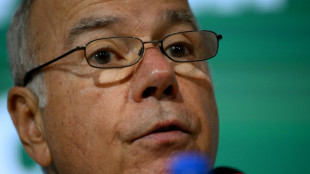
-
 Trump praises Bezos as Amazon denies plan to display tariff cost
Trump praises Bezos as Amazon denies plan to display tariff cost
-
France to tax small parcels from China amid tariff fallout fears
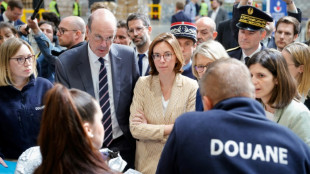
-
 Hong Kong releases former opposition lawmakers jailed for subversion
Hong Kong releases former opposition lawmakers jailed for subversion
-
Trump celebrates tumultuous 100 days in office

-
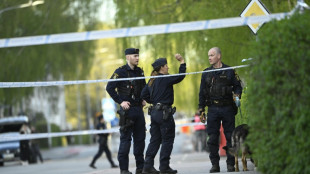 Sweden gun attack leaves three dead
Sweden gun attack leaves three dead
-
Real Madrid's Rudiger banned for six matches after Copa final red

-
 Firmino, Toney fire Al Ahli into AFC Champions League final
Firmino, Toney fire Al Ahli into AFC Champions League final
-
Maximum respect for Barca but no fear: Inter's Inzaghi

-
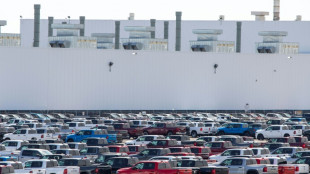 Trump signals relief on auto tariffs as industry awaits details
Trump signals relief on auto tariffs as industry awaits details
-
Cuban court revokes parole of two prominent dissidents
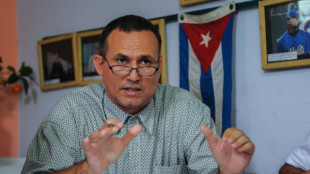
-
 Narine leads from the front as Kolkata trump Delhi in IPL
Narine leads from the front as Kolkata trump Delhi in IPL
-
Amazon says never planned to show tariff costs, after White House backlash

-
 Djokovic to miss Italian Open
Djokovic to miss Italian Open
-
Trossard starts for Arsenal in Champions League semi against PSG

-
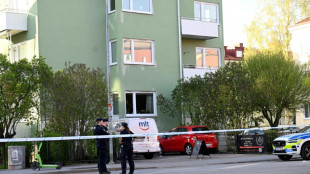 Sweden shooting kills three: police
Sweden shooting kills three: police
-
Real Madrid's Rudiger, Mendy out injured until end of season

-
 Dubois' trainer accuses Usyk of 'conning boxing world'
Dubois' trainer accuses Usyk of 'conning boxing world'
-
Femke Bol targets fast return after draining 2024

-
 Asterix, Obelix and Netflix: US streamer embraces Gallic heroes
Asterix, Obelix and Netflix: US streamer embraces Gallic heroes
-
Watson wins Tour de Romandie prologue, Evenepoel eighth

-
 Amazon says never decided to show tariff costs, after White House backlash
Amazon says never decided to show tariff costs, after White House backlash
-
India gives army 'operational freedom' to respond to Kashmir attack
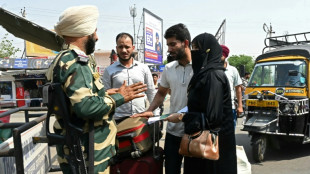
-
 Stocks advance as investors weigh earnings, car tariff hopes
Stocks advance as investors weigh earnings, car tariff hopes
-
Canadian firm makes first bid for international seabed mining license
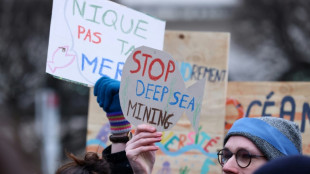
-
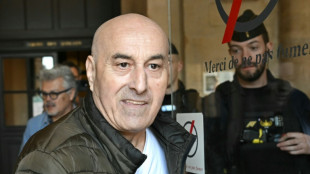 Kardashian robbery suspect says heist was one 'too many'
Kardashian robbery suspect says heist was one 'too many'
-
'Chilled' Swiatek scrapes into Madrid Open last eight

-
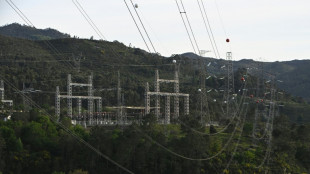 Interconnectivity: the cornerstone of the European electricity network
Interconnectivity: the cornerstone of the European electricity network
-
France accuses Russian military intelligence of cyberattacks
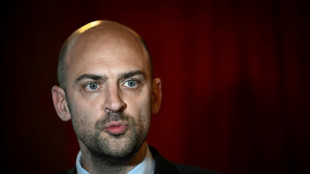
-
 Multiple challenges await Canada's Carney
Multiple challenges await Canada's Carney
-
US consumer confidence hits lowest level since onset of pandemic


Key points one month after Turkey earthquake
A massive 7.8-magnitude earthquake rocked huge swathes of Turkey and parts of Syria on February 6, killing more than 50,000 people in both countries.
The World Health Organization said it was the "worst natural disaster" in the European region for a century.
One month on, Turkey is facing the daunting task of rebuilding flattened cities, with tens of thousands buried and many survivors barely subsisting in tents or containers.
- Loss -
The country's death toll from the quake has risen to 45,968, Interior Minister Suleyman Soylu said Saturday, with 4,267 of the dead Syrian refugees who fled the civil war in their country. Thousands more in Syria have died.
The earthquake struck 11 Turkish provinces at 4:17am local time as people slept in homes not built to withstand powerful tremors.
Turkish officials said 214,000 buildings collapsed following the quake, many of them in Hatay and Kahramanmaras.
Teams of workers are still toiling to clear the rubble that now dominates quake-hit cities.
About 14 million people have been affected by the disaster -- one sixth of the country's population.
President Recep Tayyip Erdogan said to date 3.3 million people had been forced to leave the quake zone. More than 1.4 million have been resettled in tents and nearly 46,000 in container cities, while the rest have been settled in dormitories and guesthouses, according to official figures.
- Frustration -
There has been mounting frustration at the government over its handling of the disaster. Erdogan has blamed severe winter conditions that covered major roads in ice and snow, damaged roads and inoperable airports.
In some provinces, including Adiyaman, anger at the state remains strong. Survivors told AFP they had been left to save loved ones trapped under the rubble with their bare hands because there were no rescue teams, soldiers or police for days after the quake.
Some survivors recounted witnessing the death of their relatives because they weren't able to pull them from the rubble due to a lack of equipment needed to drill through slabs of concrete.
Erdogan conceded "shortcomings" and asked for "forgiveness" after criticism of his government's response.
"It's not possible to be ready for a disaster like this", he said during a visit to the quake region.
Opposition media and politicians blamed government institutions including the disaster agency for its slow response.
The Red Crescent Society and its president, Kerem Kinik, were chided for selling rather than donating tents for those made homeless by the quake.
So far, no government officials have claimed responsibility for the response and none have resigned.
Contractors have been blamed for following lax standards that allowed so many buildings to crumble like pancakes.
Authorities have detained more than 200 people including construction contractors as part of a widening probe. Turkish media showed some contractors held at Istanbul airport while trying to flee the country.
- Cost -
Already suffering from skyrocketing inflation and a weakening currency, Turkey must now absorb the economic damage of the earthquake, estimated at more than $34 billion by the World Bank.
The amount is equivalent to four percent of the country's 2021 GDP, and does not account for the costs of reconstruction that could be "twice" as large, the bank said.
With elections just a few months away, Erdogan has promised to provide new homes to the millions affected within a year.
The Turkish leader has relied on the country's construction sector over his two decades in power, boasting of a modernisation drive that has built roads, bridges and tunnels.
The post-quake rebuilding effort could yield economic rewards, according to the European Bank for Reconstruction and Development.
"The boost to output from reconstruction activities may largely offset the negative impact of the disruption to economic activity," the bank said.
-Political consequences -
Legislative and presidential elections will go ahead as planned on May 14 despite the earthquake, Erdogan said this week.
The president last month declared a three-month state of emergency across the quake region, fuelling rumours that the vote could be postponed. It's still unclear how voting security will be restored and displaced people will be able to cast a vote.
The elections appear to be the most crucial for Erdogan, in power first as prime minister and then president since 2003.
The earthquake forced the delay of an announcement by the country's opposition alliance of a unity candidate, now expected on Monday. The most likely candidate is Kemal Kilicdaroglu, head of the main opposition CHP party.
But his nomination has been strongly opposed by the nationalist party leader in the alliance.
M.Thompson--AMWN